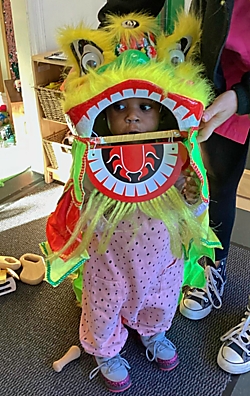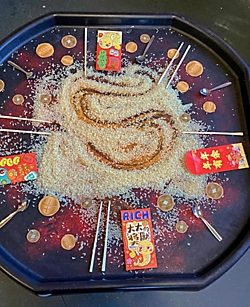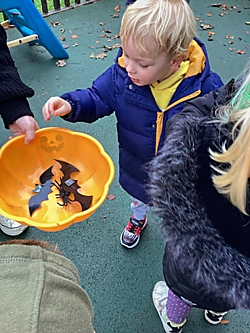 Cultural Events and Festivals in Nurseries
Cultural Events and Festivals in Nurseries
Celebrating cultural events and festivals in nurseries is an excellent way to promote diversity, inclusion, and understanding among young children. It helps them develop a sense of respect and appreciation for different cultures and traditions, and it also provides opportunities for them to learn about history, geography, and social studies. By incorporating cultural celebrations in early years settings, you can create a welcoming and inclusive environment that celebrates differences and promotes equality.
Understanding different cultures and festivals is an essential part of early years education. It helps children develop social skills, empathy, and respect for others. It also supports their cognitive development by introducing them to new ideas, concepts, and perspectives. Incorporating cultural celebrations in early years settings can be done in various ways, such as through music, dance, storytelling, food, and art. It can also be an opportunity for children to learn new languages, dress up in traditional clothing, and explore different customs and traditions.
Key Takeaways
Celebrating cultural events and festivals in nurseries promotes diversity, inclusion, and understanding among young children.
Incorporating cultural celebrations in early years settings helps children develop social skills, empathy, and respect for others, and supports their cognitive development by introducing them to new ideas, concepts, and perspectives.
Understanding different cultures and festivals is an essential part of early years education, and it can be done in various ways, such as through music, dance, storytelling, food, and art.
Importance of Celebrating Cultural Events and Festivals in Nurseries
As a nursery practitioner, you play a vital role in helping children to develop respect, knowledge, and awareness of different cultures and traditions. Celebrating cultural events and festivals in nurseries is an excellent way to promote diversity, equality, and mutual respect among children.
By introducing children to different cultures, you can help them to develop a sense of curiosity and interest in the world around them. This can help to broaden their horizons and encourage them to be open-minded and accepting of others.
Celebrating cultural events and festivals can also help to promote children’s personal, social and emotional development. By learning about different cultures and traditions, children can develop a sense of pride in their own cultural heritage, as well as an appreciation for the cultures of others. This can help to boost their self-esteem and promote kindness and tolerance towards others.
Furthermore, celebrating cultural events and festivals can help to create a sense of community within the nursery. By involving parents and families in these celebrations, you can create a supportive and inclusive environment that values diversity and promotes equality.
In conclusion, celebrating cultural events and festivals in nurseries is an important way to promote respect, knowledge, and awareness of different cultures and traditions. By introducing children to different cultures, you can help them to develop a sense of curiosity and interest in the world around them, promote their personal, social and emotional development, and create a supportive and inclusive community within the nursery.
Understanding Different Cultures and Festivals
As a nursery, it is important to us to teach children about different cultures and embrace diversity. Celebrating different festivals and events is a great way to introduce children to different cultures and traditions.
In the early years, children are naturally curious and open-minded. By exposing them to different cultures and festivals, you can help them develop an understanding and appreciation for diversity. This can help them grow into tolerant and respectful individuals.
Religious festivals such as Diwali, Eid, Hanukkah, Rosh Hashana, Yom Kippur, and Sukkot are important events that we celebrate in nursery. These festivals provide an opportunity to teach children about different faiths and beliefs.
We feel it is important to celebrate all festivals equally and not just focus on the ones that are familiar to us. This can help children learn about different ways of life and develop an understanding of cultural diversity.
In the UK, promoting British values is also important. Celebrating festivals and events from different cultures help our children develop an understanding of British values such as tolerance, respect, and democracy. It also helps them appreciate the diversity of British society.
We celebrate festivals and events in a variety of ways. For example, the children take part in food tasting from different countries, they dress up in national costumes, and make arts and crafts related to the festival. We love to invite parents and members of the community to share their experiences and traditions — when we are able.
Overall, celebrating different cultures and festivals help children develop an understanding and appreciation for diversity. By embracing cultural diversity, we help our children grow into tolerant and respectful individuals.
 Incorporating Cultural Celebrations in Early Years Settings
Incorporating Cultural Celebrations in Early Years Settings
Celebrating cultural events and festivals in nurseries is a great way to promote diversity and inclusivity. By incorporating cultural celebrations into our nursery, we hope to create a learning environment that is welcoming and accepting of all children and families.
To successfully incorporate cultural celebrations, we have a resources such as books, music, and art supplies that represent different cultures. This helps children learn and understand about and appreciate different traditions and beliefs. We also incorporate role play to introduce children to different cultures and customs in a fun way.
It is important for us to create an environment that is supportive of cultural diversity. We often display artwork and decorations that represent different cultures and encourage children to share their own cultural experiences. Our practitioners are positive role models, demonstrating respect and appreciation for all cultures.
When planning activities and events, it is important to us to ensure that all children feel included. This is achieved by celebrating all festivals equally and providing a variety of activities that cater to different interests and abilities. We also consider the dietary requirements of children from different cultures when planning snacks and meals.
Incorporating cultural celebrations into our nursery can have a positive impact on children’s learning and development. It can help children to develop a sense of identity, promote empathy and understanding, and foster a love of learning about different cultures. By creating a culturally diverse environment, we feel we help to prepare children for life in a multicultural society.
Celebrating Major Cultural Festivals
At Hackenthorpe Hall Nursery, celebrating cultural festivals is an important way for us to teach children about different cultures and traditions. It helps to promote diversity, tolerance, and understanding.
Here are some major cultural festivals that we celebrate:
Christmas
We teach the children that this is a time for families to come together, exchange gifts, and share meals. In nurseries, we decorate rooms with Christmas trees, lights, and ornaments. Children make Christmas cards and crafts, sing carols, and learn about the story of the Nativity.
Diwali
Diwali is a Hindu festival of lights celebrated in October or November every year. It is a time for families to come together, light lamps and candles, and share sweets. We celebrate by making Diwali crafts, decorating the classroom with Rangoli patterns, and learn about the story of Rama and Sita.
Holi
Holi is a Hindu festival of colours celebrated in March every year. It is a time for families to come together, play with colours, and share sweets. We celebrate by making Holi crafts, playing with coloured powder, and learn about the story of Prahlada and Holika.
Yom Kippur
Yom Kippur is a Jewish festival of atonement and repentance celebrated in September or October every year. It is a time for reflection, fasting, and prayer. In nursery, we celebrate by learning about the story of Jonah and the Whale, making Yom Kippur crafts, and talking about the importance of forgiveness.
Sukkot
Sukkot is a Jewish festival of booths celebrated in September or October every year. It is a time for families to build and decorate temporary shelters, share meals, and celebrate the harvest. The children make Sukkot crafts and learn about the story of the Exodus.
Hanukkah
Hanukkah is a Jewish festival of lights celebrated in December every year. It is a time for families to light candles, exchange gifts, and share meals. The children make Hanukkah crafts, playing dreidel, and learn about the story of the Maccabees.
Eid Eid is a Muslim festival celebrated twice a year, Eid al-Fitr and Eid al-Adha. It is a time for families to come together, exchange gifts, and share meals. The children make Eid crafts, learning about the story of Ibrahim and Ismail, and talk about the importance of charity and community.
Easter
Easter is a Christian festival celebrated in March or April every year. We teach the children about exchanging Easter eggs and sharing meals. Easter is celebrated by making Easter crafts, learning about the story of Jesus and the Resurrection, and having an Easter egg hunt on the garden.
Rosh Hashana
Rosh Hashana is a Jewish festival of the New Year celebrated in September or October every year. It is a time for families to come together, share meals, and reflect on the past year. In nurseries, the children make Rosh Hashana crafts, learn about the story of creation, and talk about the importance of reflection and self-improvement.
In conclusion, celebrating cultural festivals in nurseries is an important way to promote diversity, tolerance, and understanding. By learning about different cultures and traditions, children can develop a broader perspective and appreciation for the world around them.

 Incorporating interactive activities in our nursery’s celebration of cultural events and festivals helps children develop an appreciation for different cultures and traditions. By providing a fun and engaging way to learn, children gain a deeper understanding of the world around them.
Incorporating interactive activities in our nursery’s celebration of cultural events and festivals helps children develop an appreciation for different cultures and traditions. By providing a fun and engaging way to learn, children gain a deeper understanding of the world around them.